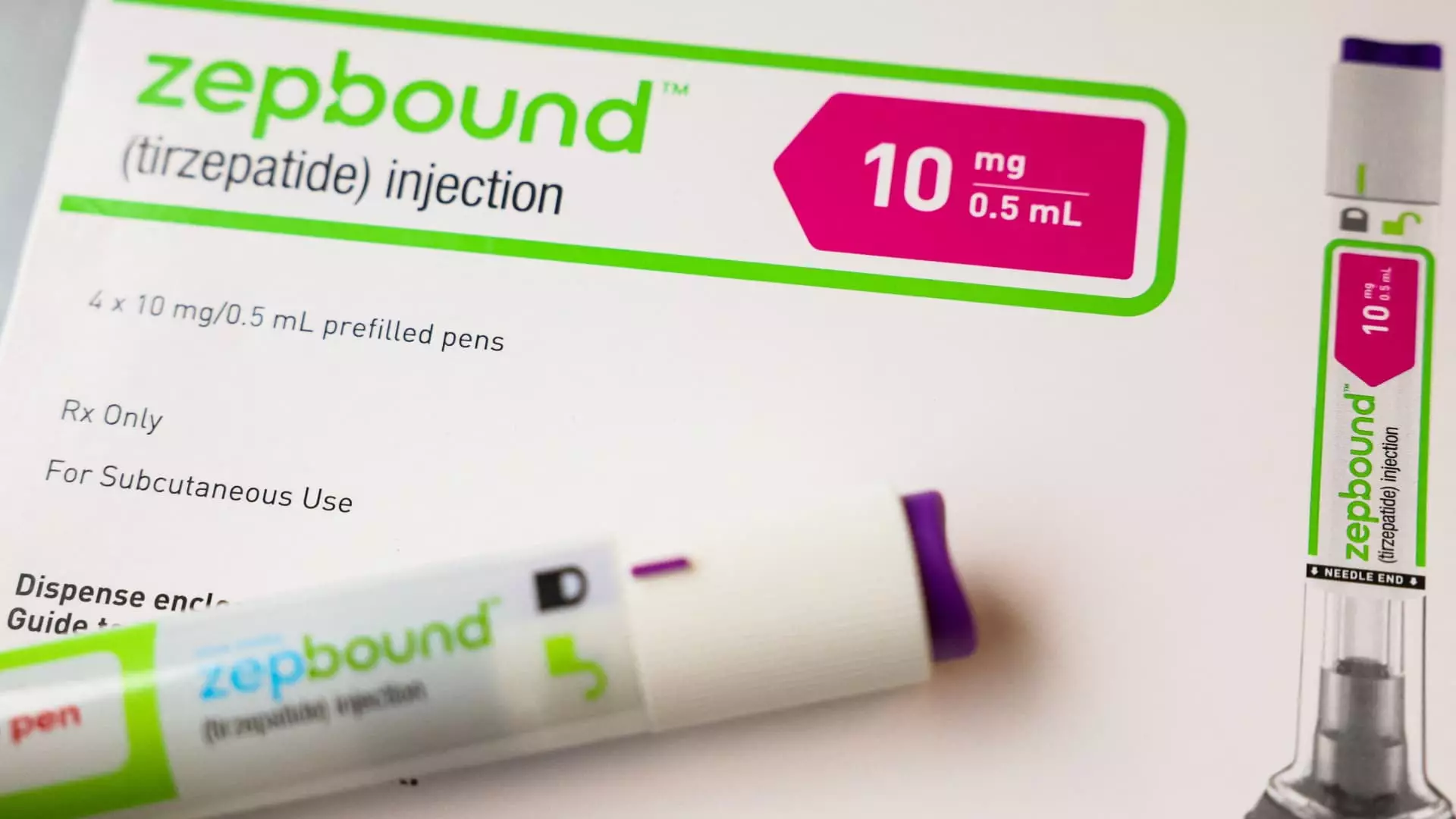In an era where obesity is recognized as a critical public health concern, innovative pharmaceutical solutions are essential to overcoming this epidemic. Eli Lilly’s weight loss medication, Zepbound, has emerged as a game-changer in this domain. As demand for effective treatments escalates, Eli Lilly has made a strategic move to broaden the accessibility of Zepbound by introducing higher dosage options in single-dose vials at significantly reduced prices for patients lacking insurance coverage.
With obesity now acknowledged as a chronic disease that exacerbates various health issues, including diabetes and cardiovascular disorders, effective treatment options are crucial. The introduction of Zepbound has been met with enthusiasm, especially by those who have struggled with weight management. However, the cost barrier continues to pose challenges for many individuals, particularly those on Medicare or employer-sponsored plans that do not cover anti-obesity treatments.
On a pivotal Tuesday, Eli Lilly revolutionized the market by announcing that it would be offering the 7.5 milligram and 10 milligram doses of Zepbound at drastically reduced prices through their dedicated consumer-facing platform, LillyDirect. At just $499 for a month’s supply of the 7.5 milligram vial upon first prescription or refill, and $599 and $699 for the 10 milligram doses thereafter, Eli Lilly aims to make Zepbound more financially feasible. This price reduction marks a significant transformation from the standard costs typically seen, particularly for medications in the obesity treatment sector.
The self-pay pharmacy model on LillyDirect permits eligible patients—those diagnosed with obesity or obesity alongside obstructive sleep apnea—to directly purchase their medication. Seasonal changes in clinical guidelines further support this approach, reflecting a nuanced understanding of patient needs and an effort to provide viable alternatives to the more traditional treatments that have consumed healthcare spending.
Addressing the Lack of Insurance Coverage
One of the major hurdles in the fight against obesity lies not just in the availability of effective treatments, but also in the healthcare financing structure that leaves many patients out in the cold. As Patrik Jonsson, president of Eli Lilly’s diabetes and obesity division, points out, the absence of comprehensive coverage for obesity treatment necessitates innovative solutions to meet the growing needs of affected individuals. The recent changes are an effort to make strides in closing this gap, particularly for Medicare beneficiaries who lack access to Eli Lilly’s typical savings programs.
Furthermore, Jonsson has expressed his hope for reform at the federal level, aiming to secure Medicare coverage for obesity treatments. This could mark a significant shift in how obesity is managed on a national scale, potentially leading to broader insurance acceptance for various treatment modalities and a reduction in healthcare costs over the long term.
As the market for obesity treatments expands, the issue of safety and efficacy becomes increasingly salient. Many patients, faced with the high costs of branded medications like Zepbound, have turned to compounding pharmacies that offer alternative formulations at lower prices. Eli Lilly is committed to combating this trend by providing an FDA-approved solution that guarantees quality and verified safety.
With the FDA recently affirming that the supply shortage of Zepbound has been resolved, Eli Lilly hopes to mitigate the reliance on less-regulated knockoff products. Jonsson has noted the importance of this strategy as they work to build consumer confidence in Zepbound’s safety, emphasizing that “patients shouldn’t rely on knockoffs that don’t meet stringent FDA standards.”
Although the uptake of the newly priced vials is encouraging—reported to represent a low- to mid-single-digit percentage of the broader obesity treatment population—Eli Lilly acknowledges that significant challenges remain. The company has not disclosed precise statistics on orders from LillyDirect but remains optimistic that introducing higher doses will increase adoption rates among new patients. The direct-to-consumer health model offers a streamlined approach to securing necessary prescriptions, pairing technology with healthcare access in unprecedented ways.
As Eli Lilly embarks on this new journey with Zepbound, the focus shifts to sustaining momentum and enhancing engagement among prospective patients. The company’s innovative pricing and distribution strategies represent a significant leap forward, opening doors to increased access for those grappling with obesity and paving the way for further developments in the pharmacological management of this complex condition.
Ultimately, Eli Lilly’s recent initiatives with Zepbound underscore an important evolution in the pharmaceutical landscape surrounding obesity treatment. By addressing the price barriers faced by uninsured individuals and Medicare beneficiaries, the company not only enhances the accessibility and appeal of Zepbound but also sets a precedent for future innovations in the industry. This movement towards more inclusive healthcare representation will be pivotal in combating obesity effectively, fostering hope for many who struggle with this chronic disease.


Leave a Reply